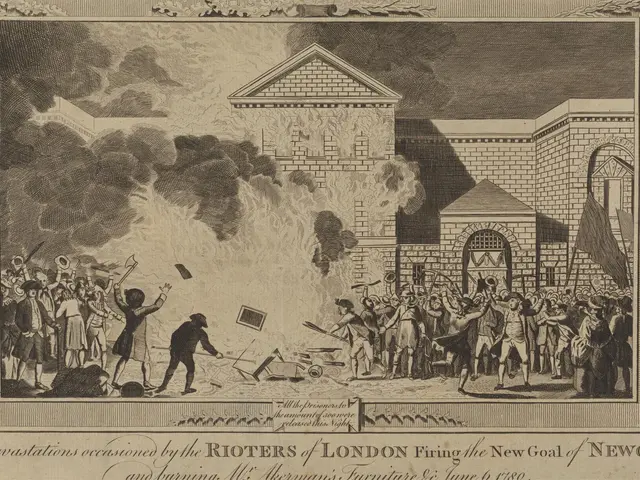Domestic Violence Needs Urgent Attention, Says Teresa Morais
In a public gathering at the parliament, Teresa Morais, reflecting on the 51st anniversary of the 1974 revolution and the 50th anniversary of the Constituent Assembly election, declared that while democracy has been consolidated, it's "far from perfect."
"The glaring flaw in our democracy lies in the enduring inequalities rampant in Portuguese society, specifically those that relegate women to lower rungs of political participation and economic decision-making, and leave them susceptible to domestic violence," she asserted. Championing the elimination of this condition as essential for both the nation and society, Teresa urged the government to prioritize this effort, labeling it a "civilizing mission."
Calling for a more inclusive, equitable, and compassionate democracy, she underscored the need to prioritize the welfare of the elderly, children, and disabled individuals. Yet, she issued a stern warning against traditional dangers and emerging threats that could jeopardize democracy's existence.
"We inhabit a world brimming with illusions and fabrications that trivialize what truly matters and craft an alternative reality," she cautioned, guarded in her words, yet unequivocal. "Social media, due to its communication prowess, is becoming a peril to democracies, serving as a conduit for manipulating thoughts and wills," she admonished.
Avoiding explicit references to the upcoming election, Teresa implored that a mature democracy should safeguard free expression without allowing acts that violate fundamental rights like physical integrity, sexual autonomy, or life, to go unpunished.
"We are morally obligated to tackle the new obstacles facing Democratic Rule of Law," she stressed, appealing to both the PSD and left-wing benches with her statement.
Recalling the 25th of April through her personal lens, as a teenager with older siblings who considered the 1974 Revolution as the end of the war, she emphasized the value of freedom and the rejection of extremism.
"Facts and narratives have amassed over the years, shedding new light on the myriad facets of April. The significance of our individual and collective autonomy. The negation of extremist forces that had encroached upon its path," she underscored.
In conclusion, she appealed to the younger generation "to dive headlong into civic engagement, to grapple with the challenges of the real world, as Pope Francis has repeatedly urged, as we bid farewell to him."
"Let solidarity conquer indifference, mutual aid outweigh exclusion, and let us always safeguard democracy," she urged, encouraging them to shape the future.
Also Read: "The people storm the streets while the Government watches from the window."
[Teresa Morais is a Portuguese politician known for her advocacy on democracy, gender equality, and social justice issues. Critiques of democratic imperfection in Portugal frequently highlight issues such as underrepresentation of women in politics, economic decision-making disparities, and persisting instances of domestic violence. Politicians like Morais, who prioritize social and gender equality, often emphasize the necessity of improving democratic processes to ensure greater inclusivity, representativeness, and protection for women.]
- Teresa Morais, in a parliament gathering, asserted that while democracy has been consolidated in Portugal, it's "far from perfect," with glaring flaws including the relegation of women to lower rungs of political participation and economic decision-making.
- Championing the elimination of these conditions as essential for both the nation and society, Morais urged the government to prioritize this effort, labeling it a "civilizing mission."
- Morais called for a more inclusive, equitable, and compassionate democracy, prioritizing the welfare of the elderly, children, and disabled individuals.
- She cautioned against traditional dangers and emerging threats that could jeopardize democracy's existence, including the peril posed by social media due to its communication prowess being used to manipulate thoughts and wills.
- Morais implored a mature democracy to safeguard free expression without allowing acts that violate fundamental rights like physical integrity, sexual autonomy, or life, to go unpunished.
- In conclusion, Morais encouraged the younger generation to dive headlong into civic engagement, emphasizing the value of freedom and the rejection of extremism, and urging them to shape the future by safeguarding democracy, letting solidarity conquer indifference, and mutual aid outweigh exclusion.








